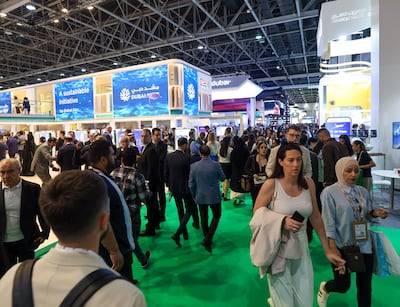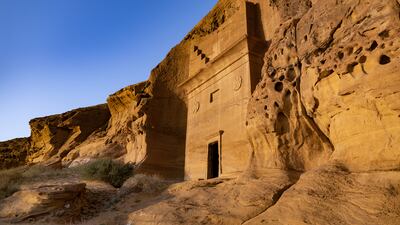GCC tourism officials on Monday called for an aligning of mega events in the region as the six-nation economic bloc gets ready to launch a unified visa.
One of the main aims is to extend the length of stay of travellers coming to the region, which has been investing heavily in its tourism and business events sectors, said Khalid Al Midfa, chairman of Sharjah Commerce and Tourism Development Authority.
"We want [leisure travellers] to combine their holidays here within the GCC and make it easy for them, so they can buy a package," Mr Al Midfa said during a panel session at the Arabian Travel Market event in Dubai.
"We might need to align some of the biggest mega events ... to work out in terms of timing, so we don't have overlapping events, and this will be definitely one of the things that we are going to work on with the rest of the GCC countries."

The remarks come as the GCC works on introducing a unified tourist visa, expected to open the Gulf region to tourists from the Middle East and around the world. The visa is expected to be launched either this year or next.
The number of visitors to GCC countries reached 39.8 million in 2022, showing a 136.6 per cent growth compared to 2021, with a target of reaching 128.7 million visitors by 2030.
Major aviation hubs in the region such as Dubai and Doha serve as a layover point for travellers en route to the US or Europe.
“We're at the phase where we're really studying the visa side [and] how it will work,” Mr Al Midfa said.
Unlike the Schengen visa, an entry permit for the 29 countries of the Schengen area, the GCC visa would be driven by the tourism sector, he said.
“Their vision and the structure was different and the objective was different. It was more maybe socio-economical [and] political. We structured [it] a bit differently for people to access the different GCC countries,” Mr Al Midfa said.
By co-ordinating on major events collectively, the GCC region could attract globally renowned figures, Fahd Hamidaddin, chief executive of the Saudi Tourism Authority, said during the same panel session.
“If we want to get the Taylor Swifts of the world, we can collaborate and get them to the region if we do it together,” he said.
“I really love the suggestion of aligning our calendar at least on the big events, not only the ones that we host individually.”
Saudi Arabia, which launched an e-visa for GCC residents last year, is working on “renovating” and “improving” its borders with several countries such as Qatar and Oman, Mr Hamidaddin said.
“On top of pro-business regulations related to access, I think, connectivity with high infrastructure capital investment, where only governments can take the lead, is also critical.
“Having a railway system that connects [the region] will also be a game-changer,” he said.
A GCC railway project, a 2,117km route connecting major cities in each of the six member states, is expected to be up and running by 2030.

